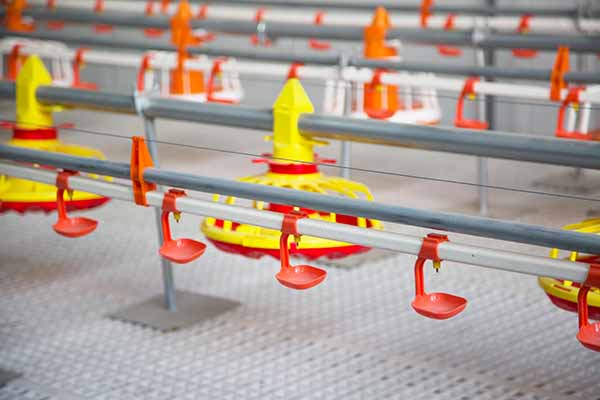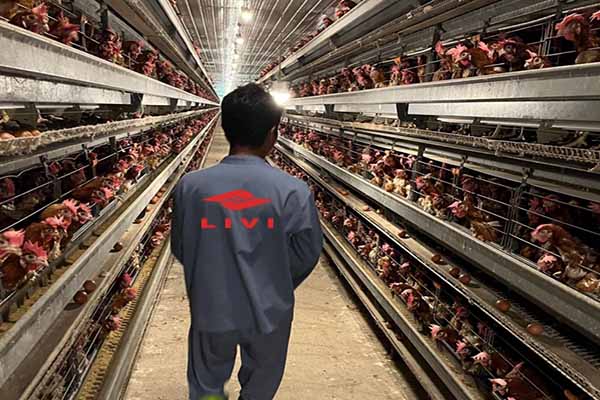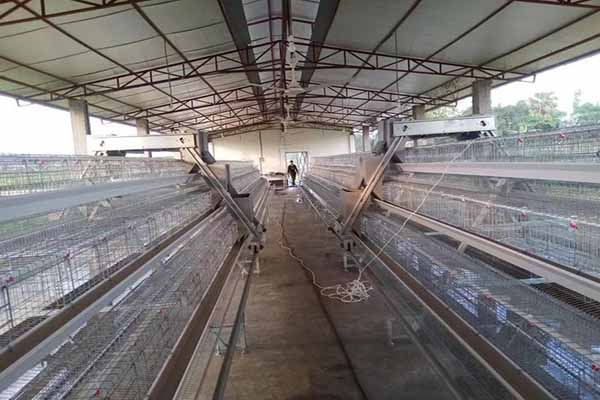Broiler Production in Ghana: A Comprehensive Guide
Time : 2025-05-12
Hey there, poultry enthusiasts and business-minded folks! If you’re looking to dive into the broiler production industry in Ghana, you’ve come to the right place. In this article, we’ll explore everything you need to know about broiler production in Ghana, from the basics to the nitty-gritty details. So, let’s get cracking!
Understanding Broiler Production
First things first, let’s clarify what broiler production is all about. Broilers are chickens bred specifically for meat production. They grow rapidly and reach market weight in about 6-8 weeks. Now, let’s see how this process unfolds in Ghana.

Broiler Production in Ghana: The Landscape
Ghana, a country in West Africa, has been making strides in the poultry industry, especially in broiler production. The country has a favorable climate for poultry farming, and the demand for chicken meat is skyrocketing. But what makes broiler production in Ghana unique?
Climate and Resources
Ghana’s tropical climate provides ideal conditions for poultry farming. The country boasts abundant natural resources, including water, which is crucial for maintaining the health of broiler chickens. Additionally, the availability of feed resources, such as corn and soybean meal, makes Ghana a prime location for broiler production.
Market Demand
The demand for chicken meat in Ghana is on the rise, thanks to the growing population and increasing urbanization. According to the Ghana Poultry Association, the domestic consumption of chicken meat has increased by 15% annually over the past decade. This presents a golden opportunity for investors and entrepreneurs to tap into the broiler production market.
Setting Up Your Broiler Production Business in Ghana
Now that you’re aware of the potential in the broiler production market in Ghana, let’s delve into the steps required to set up your business.
Market Research
Before jumping into the broiler production business, it’s essential to conduct thorough market research. This will help you understand the competition, customer preferences, and the overall market dynamics. Here are a few tips to get you started:
- Analyze the existing players in the market and their offerings.
- Identify potential target markets, such as urban areas, schools, and hospitals.
- Assess the demand for different types of broiler chicken, such as free-range or organic.
Feasibility Study
A feasibility study is a crucial step to determine whether your broiler production business is viable. It involves analyzing factors such as startup costs, operational expenses, and potential revenue. Here’s what you need to consider:
- Land acquisition: Find a suitable location for your farm, ensuring it’s accessible and has adequate space for chicken coops.
- Chicken coops: Design and construct chicken coops that provide optimal conditions for broiler chickens, including temperature, ventilation, and lighting.
- Feed supply: Establish a reliable source for feed, considering the quality and cost of feed ingredients.
- Water supply: Ensure a constant supply of clean water for the chickens.
Broiler Production Process
Once you’ve set up your broiler production business,  it’s time to dive into the production process. Here’s a step-by-step guide to help you get started:
it’s time to dive into the production process. Here’s a step-by-step guide to help you get started:
1. Selecting the Right Breed</ h3>
h3>
Choosing the right broiler breed is crucial for successful production. Some popular broiler breeds in Ghana include Cobb, Ross, and Hubbard. These breeds are known for their fast growth rate, high feed conversion ratio, and meat yield.
2. Brooding
Brooding is the initial stage of broiler production, where chicks are kept in a controlled environment. The temperature, humidity, and ventilation are carefully managed to ensure the chicks’ health and growth. It’s essential to monitor the chicks closely during this stage.
3. Feeding and Watering
Proper nutrition is key to healthy broiler chickens. Provide a balanced diet that meets their nutritional requirements. Ensure fresh, clean water is available at all times.
4. Health Management
Preventive healthcare is crucial in broiler production. Regularly vaccinate the chickens against common diseases, and monitor their health for any signs of illness. Consult with a veterinarian to develop a comprehensive health management plan.
5. Processing and Marketing
Once the broilers reach market weight, it’s time to process them. This involves slaughtering, plucking, eviscerating, and chilling the chickens. Ensure that the processing facilities adhere to food safety standards. After processing, market your broiler chickens through various channels, such as local markets, supermarkets, and restaurants.
Challenges and Solutions in Broiler Production in Ghana
While broiler production in Ghana offers immense potential, it’s not without its challenges. Here are some common challenges and their solutions:
1. Feed Availability and Cost
Feed is a significant expense in broiler production. To mitigate this, explore alternative feed sources, such as locally sourced crops, and negotiate with suppliers for better prices.
2. Disease Outbreaks
Disease outbreaks can decimate your broiler flock. Implement strict biosecurity measures, including regular cleaning and disinfection of the farm, and maintain a close relationship with a veterinarian.
3. Market Access
Accessing the market can be challenging for small-scale producers. Consider forming cooperatives or partnerships with larger businesses to gain better market access and bargaining power.
Conclusion
Broiler production in Ghana is a thriving industry with immense potential. By understanding the market dynamics, conducting thorough research, and implementing best practices, you can establish a successful broiler production business in Ghana. So, what are you waiting for? It’s time to take the leap and join the poultry revolution!











